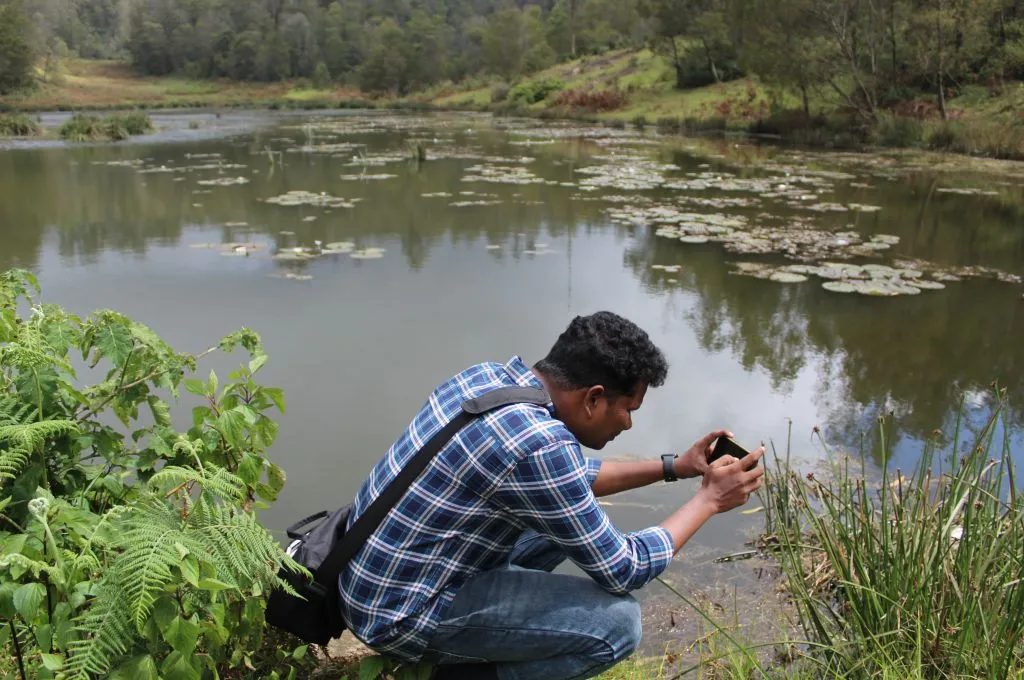The COVID-19 pandemic significantly disrupted Asia’s economic growth, exacerbating inequalities and undoing hard-won progress. More than two-thirds of those who were forced into poverty by the pandemic live in South Asia, East Asia, and the Pacific. Despite the mounting challenges, Asia’s social sector has been working with governments, companies, and philanthropists to build back better. However, underlying structural conditions and a trust deficit continue to hinder Asian philanthropy from achieving its full potential.
Cooperation between the public, private, and social sectors can help address some of these issues, and the third iteration of the Doing Good Index highlights the extent to which Asian economies are enabling (or constraining) this collaboration. The Doing Good Index’s assessment occurs along four sub-indices: regulations, tax and fiscal policy, ecosystem, and procurement. The findings draw on data from 2,239 social delivery organisations (SDOs)1 and 126 expert interviews across 17 countries.
Despite the unique characteristics of each economy, the report identifies the following trends across Asia:
1. Unprecedented funding challenges
The social sector was and remains critical to meeting the social and economic challenges posed by the pandemic. Social delivery and philanthropic organisations were responsive to the crisis and provided extra care to the most vulnerable, often in partnership with companies and government agencies. However, although SDOs have stepped up to help those affected by the pandemic, fundraising has been incredibly challenging. Almost half (47 percent) of the surveyed organisations reported a decline in funding, with 75 percent reporting a reduction of up to 50 percent.
There are multiple reasons that explain this decline in funding. First, companies, foundations, and private individuals with a history of offering philanthropic support to SDOs have pivoted over the course of the pandemic to directly fund healthcare such as the provision of personal protective equipment, often at the cost of other types of programmes. Second, many fundraising activities and events had to be cancelled owing to pandemic-induced restrictions. Third, given that SDOs were unable to meet donors in person and make their case for receiving support, many funders did not fully understand the financial consequences of reprioritising their donations.

Domestic fundraising also requires clearances in some parts of Asia. While organisations in Bangladesh, Nepal, and Taiwan must obtain permission from the government for all forms of domestic fundraising, organisations in other countries require government authorisation for specific activities such as setting up a crowdfunding platform. Although foreign funding has traditionally been an important source of funds for Asian SDOs, there has been a 13 percent drop in the number of organisations receiving foreign funding since 2020. Additionally, the share this funding contributes to their budget has also halved, from 33 percent in 2020 to 16 percent in 2022. The reasons for this include a growing focus on giving to local community responses in the wake of the pandemic, the diminishing of foreign aid as a result of increased regional affluence, and the tightening of regulations on incoming donations.
Changes to laws and policies relating to the receipt of foreign funding have led to increased uncertainty.
Including India, eight economies have regulatory and onerous requirements for receiving cross-border donations. The restrictions placed on such funding include capping the amount of funds organisations can receive and limiting the activities that such funding can be deployed towards. Changes to laws and policies relating to the receipt of foreign funding have led to increased uncertainty and a dampening effect on foreign donations in more than half of the economies included in the index.
2. Ambiguous policies and government oversight
The last two years have also brought a number of significant legal reforms and policy changes. These include short-term responses to overcome the pandemic and longer-term systemic changes. While most economies in Asia avoid placing burdensome registration requirements on SDOs, some have complicated the process. The pandemic also contributed to delays in bureaucratic processes. The time required to acquire registration clearances is more now, and it takes four months on average to register an SDO in Asia—an increase of almost 30 percent.
Clear and efficient regulations are important, but their accessibility determines their efficacy. In addition to instituting mechanisms and infrastructure that facilitate collaboration between governments and SDOs, laws must also be made publicly known. In all 17 economies, the laws and regulations are publicly available, signalling the governments’ commitment to communicate and engage with civil society. However, these laws are often challenging to understand, and this affects their efficacy. More than half of the surveyed SDOs reported that they found it difficult to understand relevant laws and regulations; this marked a 42 percent increase in comparison to 2020. This difficulty in understanding laws possibly reflects a high level of bureaucratic and regulatory complexity, and is a probable indicator of governments themselves being uncertain about the role of the social sector.
3. Continued trust deficit
Trust is an integral component of the social impact ecosystem, and regulations that enable greater transparency and accountability within the social sector are important. However, such regulations can also add undue administrative burdens. Mandatory reporting requirements are in place across Asia to encourage more transparency and accountability in the social sector. Fifteen economies require SDOs to have a board, 13 mandate that organisations preserve key internal documents, and 13 instruct SDOs to maintain board meeting minutes. However, mandatory reporting cannot adequately build trust if the reported information is not made publicly available. Making reports publicly available—a practice that is yet to be widely adopted—is a relatively straightforward trust-building method.
The lack of clear liability mechanisms is damaging to SDOs in economies where trust in the social sector is already low.
Almost all the examined nations have designated liability policies for organisations operating within their borders. Holding directors and/or senior staff liable can enforce a standard of care, skill, and diligence in the execution of responsibilities that will deter them from engaging in poor decision-making and mismanagement. However, the lack of clear liability mechanisms is damaging to SDOs in economies where trust in the social sector is already low.
India on the Doing Good Index 2022
Just as in the 2018 and 2020 indexes, India has been classified as ‘Doing Okay’ in the 2022 index. Over the past two years, the country’s regulatory framework has changed significantly, and this has affected SDOs. The damage done by the pandemic to SDOs in India was further exacerbated by the tightening of laws governing the social sector. This happened as civil society organisations worked tirelessly to provide relief and rehabilitation to migrant workers and marginalised communities who had lost their livelihoods. Through insights obtained by surveying 165 organisations in collaboration with the Centre for the Advancement of Philanthropy, the report highlighted the following trends in India:
1. Increased but ambiguous regulations
Compared to the Asian average of 57 percent, a vastly higher number of Indian SDOs (75 percent) find it challenging to the understand the laws that govern the sector—a 50 percent increase from 2020. A particularly restrictive and ambiguous regulation is India’s Foreign Contribution Regulation Act (FCRA), which was tightened significantly in September 2020. The new amendment prohibits sub-granting, caps administrative expenses drawn from foreign funds at 20 percent, and mandates the opening of a bank account at a specific State Bank of India branch to receive foreign funds—all of which are burdensome for nonprofits.
Typically, many grassroots organisations working at the local and community levels have utilised resources from larger Indian intermediaries that are able to receive foreign funding. The prohibition on sub-granting foreign funds has put an end to this. Numerous organisations are still waiting for their FCRA registrations to be renewed, and many others have lost their FCRA license. While only a single clearance (FCRA) is required to receive foreign funding in India, government approval to receive funds from overseas can take up to two years—the longest in Asia.
2. Tax and fiscal policy
While 12 economies in Asia offer tax deduction rates of 100 percent or above for individual and corporate donors, India only offers a rate of 50 percent for both. Moreover, deductions can only be claimed for up to 10 percent of income. During the Union Budget speech in February 2020, the Indian government also declared that all charitable trusts and institutions enjoying tax exemptions or deductions must revalidate their registrations with the Income Tax Department, and this revalidation must be renewed every five years.
Although this announcement was made pre pandemic, when tax season came around, it complicated affairs for organisations that were already stretched thin owing to their on-ground relief efforts. From April 2022, SDOs are also expected to report donations (along with relevant donor details) received during the fiscal year through the income tax portal. This requirement has further disrupted the functioning of organisations raising retail funds through crowdfunding platforms, which involve large numbers of donors. On a positive note, 42 percent of nonprofits in India receive government grants, showing the significant, direct fiscal support the government provides to the social sector.
3. Corporate social responsibility
The Companies (CSR Policy) Amendment Rules, 2021, made CSR compliance for companies extremely stringent, thereby impacting organisations receiving CSR funds. Previously, the emphasis was on companies spending 2 percent of their pre-tax profits on approved CSR activities. Now the focus has shifted from ‘spending’ to ‘utilisation’. Therefore, some companies are now pressuring SDOs to fully utilise funds before the end of the fiscal year. Unless funding is allocated to an ‘ongoing project’, unutilised funds need to be returned to the company, which must then direct these funds to government funds such as the Prime Minister’s Citizen Assistance and Relief in Emergency Situations Fund (PM CARES). The new CSR rules have thus complicated project implementation, increased compliances costs, and created room for the transfer of resources from SDOs to government institutions.
The current regulatory environment for SDOs is more disenabling than ever before.
PM CARES was established in March 2020 to channel COVID-19 relief funds. It is exempt from the requirements of the FCRA and is not subject to disclosure or transparency rules regarding its use. Moreover, donations to PM CARES receive a 100 percent tax deduction and can also fulfil companies’ CSR obligations. The establishment of this loosely regulated fund, in combination with the tightening of compliance requirements for the receipt of CSR funds, indicates that the current regulatory environment for SDOs is more disenabling than ever before.
4. Challenging ecosystem
When we examine the ecosystem for doing good across Asian economies, India is among the countries that fare the worst. Its low performance in this sub-index is largely attributable to two factors. First, trust in the social sector appears to be waning. In 2020, 62 percent of SDOs in India believed that they are generally trusted by society; this number has now reduced to 55 percent. The low societal and corporate support and engagement with SDOs also hampers their capabilities. A quarter of organisations with a board lack corporate representation, with 72 percent of them finding it difficult to recruit board members from the corporate sector. The recruitment of volunteers and staff is also a challenge for Indian SDOs, and the capacity building of existing talent remains consistently overlooked by donors.
5. Untapped procurement potential
India has yet to realise its full procurement potential. It is among the worst performing economies in this sub-index, with only 17 percent of SDOs having government procurement contracts in 2022 as opposed to 37 percent in 2020. While government procurement accounted for 6 percent of an Indian SDO’s budget on average in 2020, this figure has since fallen considerably—to 1 percent. India’s performance in this sub-index is also pulled down by a lack of targeted incentives for SDOs to participate in government procurement. Additionally, in India, the income received from contracts is taxable, leading to further complications. Most organisations (80 percent) agreed that it is difficult to access information about procurement opportunities, and 77 percent of them believed it is difficult for SDOs to win contracts.
Given the remarkably altered landscape as the world emerges from the pandemic, the Doing Good Index gives a comprehensive analysis of how things stand in Asia and identifies opportunities for improvement. It can serve as a critical resource that will enable philanthropists, policymakers, researchers, SDOs, and engaged citizens across Asia to understand how philanthropy and collaboration can be enhanced.
—
Footnotes:
- The Doing Good Index uses the term ‘social delivery organisation’ instead of ‘nonprofit’ or ‘non-governmental organisation’ to refer to organisations engaged in delivering a product or service that addresses a societal need.
—
Know more
- Explore this interactive data dashboard to see how different Asian economies fare on the Doing Good Index 2022.
- Learn about raising funds from the Indian diaspora in Southeast Asia..
- Read this report to know more about how the Asian social sector responded to the COVID-19 pandemic.





